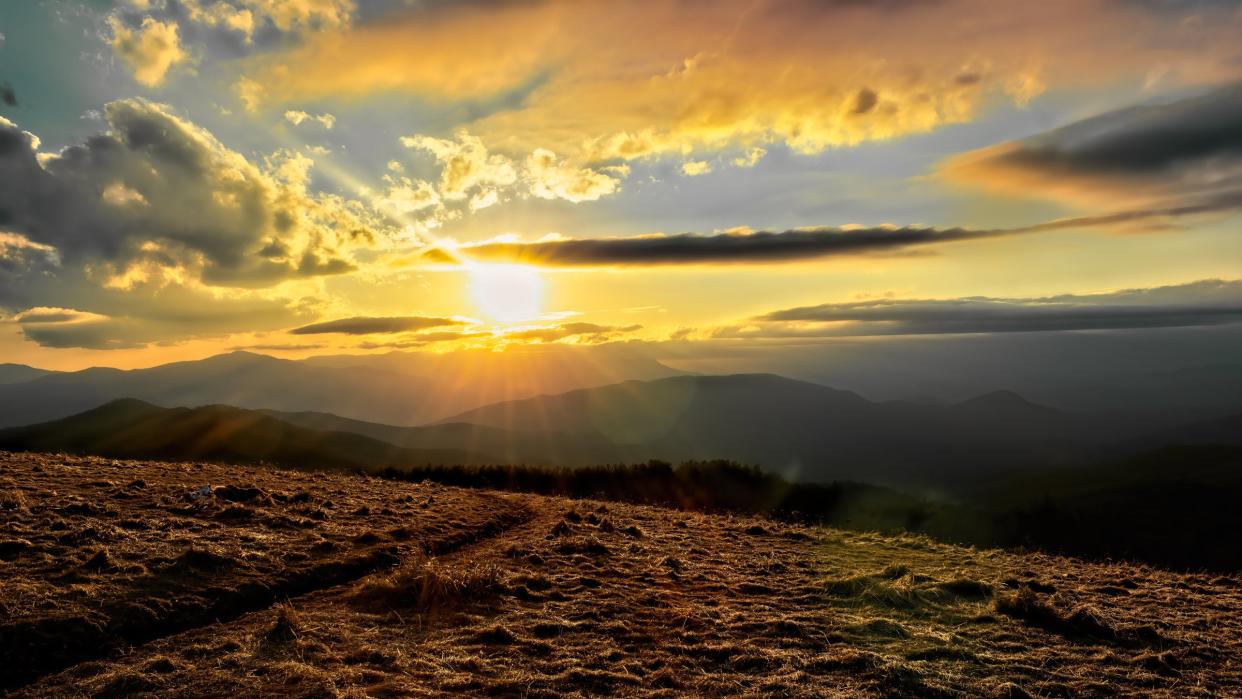The Forest Service Closed Max Patch to Camping Until 2026. Will it Ever Open Again?

This article originally appeared on Backpacker
Max Patch has recovered since it closed to camping two years ago. But if you were hoping it would welcome back backpackers soon, get ready to get disappointed: The Forest Service recently decided to extend the ban for another 3 years.
The well-known mountain provides hikers with 360-degree views, historically making it a coveted campsite for thru-hikers and locals alike. But over the past several decades it has suffered from issues like widespread littering, unauthorized off-trail use, and large amounts of human waste. Matters came to a head after Independence Day of 2020, when an image of the trashed mountain went viral and, a year later, led officials to close it off to all campers for the foreseeable future. So far, the Forest Service says, the restrictions have largely benefited the mountain.
"The primary factor [that prompted the restriction] was... the protection of public health and safety," Alan Abernethy, the Deputy Director of the Forest Service's Southern Region, told Backpacker. "Large groups, overnight camping, and overcrowding in parking areas has improved from the initial closure order, but there is concern that those issues will rise again without maintaining the restrictions outlined in the order."
Getting rid of trash was just the beginning, he says. Since the mountain closed to camping, the Forest Service has seen congestion decrease and social trails and fire pits begin to fade away.
"We have also been able to have successful installation of native grass and wildflower plantings for habitat restoration, aiding the imperiled Golden-winged Warbler and Monarch butterfly," Abernathy says.
One particularly disturbing issue that the peak faced was widespread and plentiful human poop. Both improper human waste disposal and large congregations of hikers led to the rise in sanitary concerns. Unfortunately, improperly disposed-of droppings continue to be an issue near the parking lot, Abernathy says.
According to Abernathy, the community has been supportive of the restrictions at public meetings and open houses. Due to the peak's popularity, the surrounding neighborhood often struggles with road blockages and overflow. This is one issue that has yet to be resolved. Max Patch still draws crowds due to its sheer beauty, and many locals are hopeful that the Forest Service will enact a plan that will cut down on improper parking.
Other locals have been more circumspect about the ban: In an essay last year, Steven Reinhold, a North Carolina hiker and Backpacker writer who operates the Appalachian Adventure Company, argued that the Forest Service should commit to reopening the bald with better infrastructure and staffing.
"I fear we may have set a very dangerous precedent for other beloved spots in Appalachia," he wrote. "If this dynamic becomes the new norm, It is only a matter of time before we lose overnight camping at Black Balsam or see access to the nearby Roan Highlands limited."
Determining whether or not the Max Patch restrictions will be permanent is a complex subject. Officials hope that educating visitors and closely monitoring the area's usage will allow them to select the right practices to manage the mountain in the future.
"Over the course of the new order, the Forest Service will continue to utilize the Interagency Visitor Use Management Framework, work with user-groups, the Spring Creek community, and collaborate with partners including Carolina Mountain Club and the Appalachian Trail Conservancy to continue to monitor the situation," Abernathy says. "They will continue to gather additional data, provide continued public education and monitor the area through the Trail Ambassador volunteer program. This continued work will assist the Forest Service in making appropriate decisions in the future."
Abernathy also notes that officials are taking steps to make further improvements to the peak, such as expanding the parking area and installing a vault toilet.
Visitors to the peak can play their own part in protecting Max Patch by staying informed and monitoring conditions on and near the peak. With more educated and responsible recreators, it may be possible to reopen the peak to overnight camping once again. But it will be at least 3 more years before the next backpacker legally pitches their tent on top of this scenic mountain.
For exclusive access to all of our fitness, gear, adventure, and travel stories, plus discounts on trips, events, and gear, sign up for Outside+ today.

